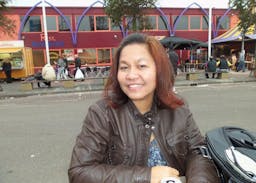Change is in the hands of yours!
Jan 21, 2015
Story
My continuous involvement in health and development related field, focusing on sexual and reproductive rights promotion is influenced by the quote, “Be the change you want to see in the world” by Mahatma Gandhi.
As I grow, I have realized how often I question myself, my colleagues, and donor agencies about how they define “change”. I wonder how those changes have been translated into actions, and or how they will enact them for the sake of so-called “development”.
It seems as if change is made equivalent to development by default. Development is seen in light of standardized benefits making available by state and mainstream policies. Therefore, communities throughout the world eventually adopt similar developmental templates which are known as “best practices”, and replicate them over again particularly in the global south.
Power is diffused all over when discussions or dialogues on “change” taken place.
Change is unavoidably funder driven. Communities have not much to say when it comes to developmental framework because it is under special care of experts and consultants. For example, funding agencies offer a ready-made package designated for their grantees entering its organizational capacity development (OCD) program plan. Thus, technical assistance from funders majorly focuses on technical aspect of OCD in which answers and solutions are envisaged, and quantified. Even though OCD also has a lot to do with adaptive aspect of change within the organization or prospective community, cultures and subcultures of communities have minimally been taken into consideration.
Nowadays, Thai society is shifting its interest and discussions towards a “local-community being”. It is highlighting an existence and importance of local cultures, folk wisdom, and being incredibly conscious of any threat on localization.
I see “change” interplays with construction and deconstruction of norms, values, beliefs, and socio-cultural behaviors of community and its members. Hence, it is extremely challenging to intervene at the level of cultural behaviors and practices when change is expected. Moreover, culture is diverse and changed over time. That opens gateway for cultural intervention. Then women writings can be drawn in to spell out explicitly how cultural behaviors and beliefs making the lives of women and girls difficult.
Since PulseWire allows an online activism on various layer to roll in front of a computer screen. Take the hand with PulseWire to streamline development field with women writings can be one strategy. Besides, it is crucial for women writers to centrally focus more in bringing more stories that illustrate how societal norms and values including cultural behaviors and practices making women and girls living in hardship.
The list of how to overcome those barriers can be added endless. I see that simply participate in online dialogue, share more stories of cultures that inhibit women and girls to exercise their full rights over their bodies, circulate or cross-post online petitions, bring women issues upfront can help overcome those challenges. Certainly it can yield positive and powerful impact from your individual level.
Change is in the hands of yours!




